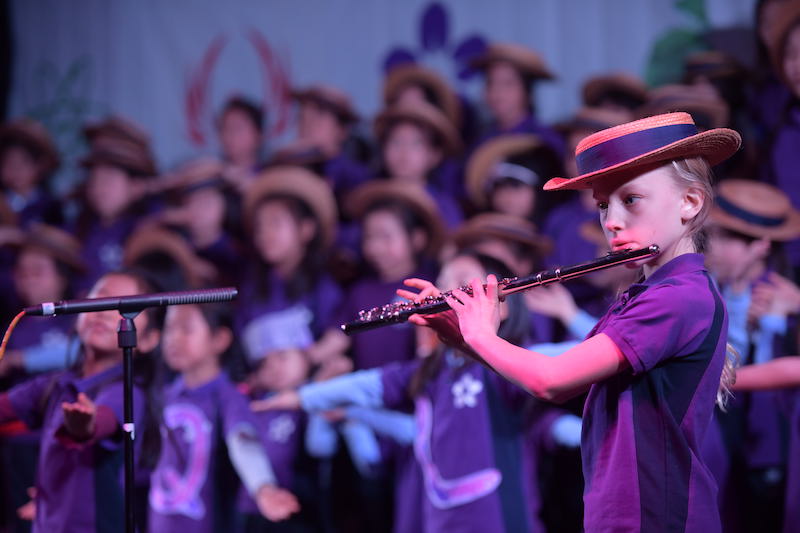What is the purpose of school?
Posted on 26th Sep 2019 in International Schools, International Education, School News, China

Sometimes simple questions require complex answers, write John Hopkins and Thomas Nolan of Harrow Beijing...
The extrinsic reasons for schooling are often cited – to prepare young people for adulthood, develop citizenship and social responsibility, preparation for university and the labour market. Intrinsic values such as developing intellectual curiosity and capacity and personal growth are also important. At Harrow Beijing, we acknowledge all of this in pursuing our school mission of ‘Leadership for a Better World’ through the vehicle of our ‘Leadership in Action’ programme.
In our ‘Leadership in Action’ programme, students learn by experience and develop their passions through being exposed to a wide range of high quality extracurricular activities. These activities are divided into four different areas, the Arts, Leadership and Service, Sports and the Super Curriculum.
The Arts offer students a unique way of learning, knowing and experiencing the world around them. It encourages them to find their own voice and way of expressing themselves and this in turn can then be applied to all areas of their lives. Students may engage in the arts in a variety of ways, and we encourage broad participation. We place great focus on collaborative experiences and place equal value on all contributions from the painter to the singer and the poet to the sculptor. Each person has a role that is valued and supported.
Leadership and Service is another key area whereby students are given the opportunity to live the School Mission of ‘Leadership for a Better World’. We believe in the concept of leadership as service and feel that the best way for our students to engage with this value is through experiential learning. We endeavor to give our students a wide range of options to work with our community offering help to those in need but also acknowledging the tremendous amount to be learned through interaction with people from diverse backgrounds. Every week, our students visit orphanages to care for the children there, teach children from local schools English, coach younger children from local schools in football and provide marketing and translations services to charities in developing countries. Each and every day we are also conscious of the benefits that doing this work brings to our own children in terms of their sense of community but also their awareness of how fortunate they are and the satisfaction that extending help to others can bring.
Sport is a wonderful platform for learning. Learning to win and lose, to lead and be led, to push and pull, to think as part of a team, how to win with grace and when to acknowledge defeat are all lessons that children learn on the playing fields. We believe that all students deserve the opportunity to enjoy sport, regardless of their ability. By devoting time and attention to those who are less confident as well as to those with more experience, we develop life skills that bring resilience and success beyond school life.
In our Super Curriculum, Harrow Beijing aims to develop the intellectual capacity and curiosity of our students beyond the measurable outcomes of examination results. Unlike examination syllabi, here learning is limitless and we believe in offering all students a counterpoint to the careful rigour of examination preparation, where they are encouraged to think critically and creatively and enjoy the freedom to develop a love of learning. We aim to provide a broad range of opportunities which promote ‘deep’ rather than ‘strategic’ learning, and where students are able to apply their learning experientially to real world issues.
Underpinning and guiding all of these activities, and indeed all of our work as a school, is Harrow Beijing’s School Mission of ‘Leadership for a Better World’. The six leadership attributes are contributing positively to community, applying knowledge with compassion, solving problems collaboratively, solving problems creatively, making just choices and facing challenges with determination. These values are taught explicitly and implicitly in our ‘Leadership in Action’ programme. Students in sports games draw on their ability to face challenges with determination and make just choices when devoting their time to the service of others. They contribute positively to their own community by recycling materials through the school and solve problems creatively organising concerts and other events to raise money for charity. Students solve problems collaboratively in the many group projects they take on to benefit the community and apply knowledge with compassion when teaching others to speak English. Above all they learn that leadership is about service, service to your friends, service to your fellow students and service to your community. This is Leadership for a Better World.
So to return to our initial question – what is the purpose of education? At Harrow Beijing, we have a clear vision and a set of values that support this vision. We believe that each student should realise their potential through exposure to a wide range of learning activities, be a leader in the area they love and realise that to lead is to serve.
John Hopkins is Assistant Head – Communications and Thomas Nolan is Assistant Head – Extra Curricular Activities, at Harrow Beijing.
This article first appeared in the 2019/20 edition of John Catt's Guide to International Schools. You can read the digital version of the guidebook here: